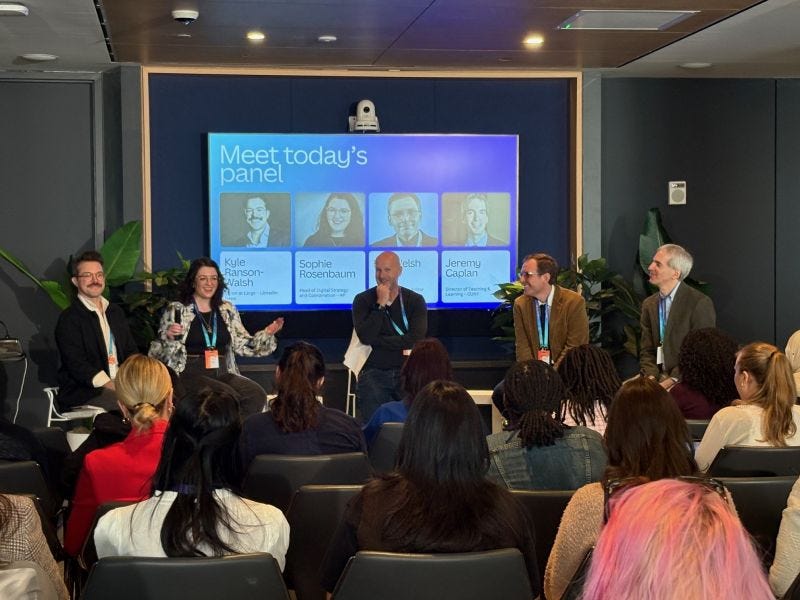Bonjour from Paris where I’m hanging with news colleagues for a chat, croissant, and a cheeky vin, before heading to London. Drop me a line if you’re in town. 🍻
Welcome too, to new subs this week from the C-suite of Russia’s #1 search engine Yandex, newsroom natural language processing outfit Geneea in Prague, the product team at The Times in London, The Guardian opinion section, leadership at innovative streamer LiSTNR in Australia, UK talent agency Constellate, the execs at cricket bible Wisden, the team at Journalism.co.uk, and my favourite for today…
…the Hines Group, a neuroscience research laboratory at the University of Nevada, focused on studying how interneurons and glial cells modulate brain activity. 🧠
Today, I’m focusing on Chrome, Google’s ubiquitous browser, and the keystone to trillions of dollars of value, and nothing less than the viability of the open web.
After defeating the search giant’s lawyers in three antitrust courts, the Department of Justice began polishing a list of demands to return competition to digital markets.
Right at the top was a demand for the forced divestment of Chrome, the world’s most popular browser, and handing it to a new custodian.
Chrome’s scale is head spinning. It has a two thirds share of the browser market making it the gateway to the web for more than four billion people.
For Google, that makes it the most powerful data-hoover in human history, and it’s been a major contributor to Mountain View’s US$350 billion revenue line.
But that’s come at a cost. Innovation in browsers has been sucked dry.
The DoJ’s demands aim to fix that by giving the next era of growth to a new owner. But who will it be?
OpenAI and Perplexity have thrown their hats in. OpenAI claims its product will “advance five years in a day” with Google’s data.
Microsoft, Yahoo, and others, have also put their hands up. (Colorado, the US State which led a coalition of 38 States in defeating Google, swiftly kiboshed Microsoft.)
Also in prime position is the publishing/content industry. It has the need and the heft to take it over and manage the 1,100 engineers who underpin it.
Only, no publishers are talking about this.
After years of being followers, there are few (or any?) leaders who have the ambition to talk a tilt at running the open web.
My view is Chrome fixes digital discovery, distribution, and monetisation, so why wouldn’t they want it.
When I ask, the response is because it’s too big, too hard, and too expensive. But is it really?
and I are joined today by two leading lights to explore the challenge of breaking up Chrome, and whether the job is being overestimated.Alissa Cooper is the executive director of the Knight Georgetown Institute and has had a distinguished career shaping global tech policy and served as a VP at Cisco.
Eric Rescorla is the former CTO of rival browser Firefox, and a senior research fellow at the Georgetown institute.
They’ve just published a comprehensive report about how Chrome can be effectively extracted from Google which concluded that it’s a big job but very achievable.
Now, let’s hear two of the world’s leading experts explain, step-by-step, how publishing can run Chrome, and put the industry back on its feet for decades to come…
Listen to this episode with a 7-day free trial
Subscribe to Future Media to listen to this post and get 7 days of free access to the full post archives.













